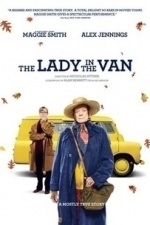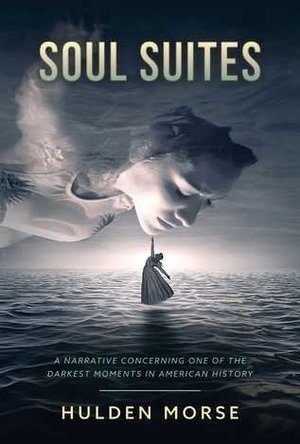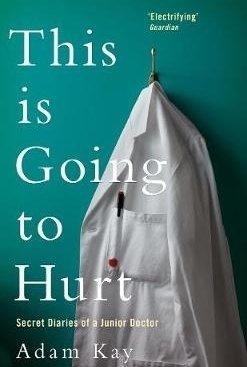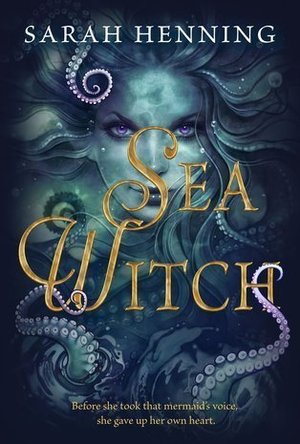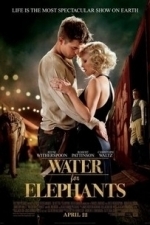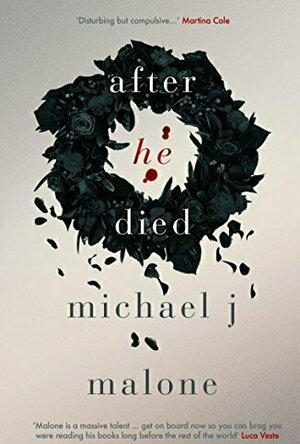Search
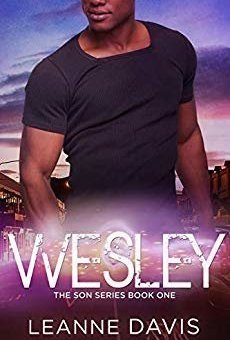
Wesley (The Son Series Book 1)
Book
~Wesley~ Yeah, I don’t trust them. Who are they? The family who takes me in after they catch...
romance contemporary African American African-American adult fiction
BankofMarquis (1832 KP) rated Godzilla Minus One (2023) in Movies
Dec 14, 2023
Surprisingly Human...for a Monster Movie
The BankofMarquis just viewed one of the most entertaining films of 2023 - and it’s a GODZILLA film.
Yes, a GODZILLA film.
From famed Japanese Studio Toho, makers of the original Godzilla film from the 1950’s plus other “man in a rubber suit” monster movies like MOTHRA and WAR OF THE GARGANTUANS, Godzilla Minus One subverts the genre for a moment for instead of presenting a “Monster stomping on buildings” movie with some people in the background, this film is about the Japanese people and how they deal with the aftermath of World War II while (also) running from a giant monster stomping on buildings - but the monster story is the “B” story and the people story is the “A” story…and this subversion of the genre works very very well.
The title of the film, Godzilla Minus One, refers to the fact that…after World War II….Japan was “starting from zero”. When Godzilla starts attacking, it knocks Japan back another peg, hence…Godzilla Minus One.
Director and Screenwriter Takashi Yamazaki tells the tale of Koichi (Ryunosuke Kamiki) who encounters Godzilla towards the end of WWII and freezes, causing the death of his fellow soldiers (so his PTSD continues to tell him throughout the film). Once back in Japan, he encounters a young woman, Noriko (Minami Hamabe) who has been left orphaned, homeless and alone and is sheparding an abandoned baby. This unlikely trio form a bond…and a home…while trying to rebuild their lives and (in Koichi’s case) tries to make sense of the devastation he encountered in the war.
Into to this rebuilding stomps Godzilla.
This story is effectively told by Yamazaki, who knows when to focus on the people aspect of the film and when to focus on the building stomping of Godzilla. It’s a delicate balance that is helped by the performances of Kamiki and Hamabe…and the special effects that brings the spirit of the 1950’s and 1960’s Toho monster films to light.
A surpwisingly rich entertainment, Godzilla Minus One will entertain you with monster stomping…and deep human emotion.
Letter Grade: A- (I’m as surprised as you are)
8 stars (out of 10) and you can take that to the Bank(ofMarquis)
Yes, a GODZILLA film.
From famed Japanese Studio Toho, makers of the original Godzilla film from the 1950’s plus other “man in a rubber suit” monster movies like MOTHRA and WAR OF THE GARGANTUANS, Godzilla Minus One subverts the genre for a moment for instead of presenting a “Monster stomping on buildings” movie with some people in the background, this film is about the Japanese people and how they deal with the aftermath of World War II while (also) running from a giant monster stomping on buildings - but the monster story is the “B” story and the people story is the “A” story…and this subversion of the genre works very very well.
The title of the film, Godzilla Minus One, refers to the fact that…after World War II….Japan was “starting from zero”. When Godzilla starts attacking, it knocks Japan back another peg, hence…Godzilla Minus One.
Director and Screenwriter Takashi Yamazaki tells the tale of Koichi (Ryunosuke Kamiki) who encounters Godzilla towards the end of WWII and freezes, causing the death of his fellow soldiers (so his PTSD continues to tell him throughout the film). Once back in Japan, he encounters a young woman, Noriko (Minami Hamabe) who has been left orphaned, homeless and alone and is sheparding an abandoned baby. This unlikely trio form a bond…and a home…while trying to rebuild their lives and (in Koichi’s case) tries to make sense of the devastation he encountered in the war.
Into to this rebuilding stomps Godzilla.
This story is effectively told by Yamazaki, who knows when to focus on the people aspect of the film and when to focus on the building stomping of Godzilla. It’s a delicate balance that is helped by the performances of Kamiki and Hamabe…and the special effects that brings the spirit of the 1950’s and 1960’s Toho monster films to light.
A surpwisingly rich entertainment, Godzilla Minus One will entertain you with monster stomping…and deep human emotion.
Letter Grade: A- (I’m as surprised as you are)
8 stars (out of 10) and you can take that to the Bank(ofMarquis)
Gareth von Kallenbach (980 KP) rated The Lady In The Van (2015) in Movies
Aug 6, 2019
In the last two decades America has seen an almost literal ‘invasion’ of British film and television programming. Like the British ‘music invasion’ some 60 years ago we just can’t seem to get enough of it. Today’s film for your consideration is the 2015 British dramatic comedy ‘The Lady In The Van’. Based upon the 1999 West End play of the same name written by Alan Bennett and starring famed British actress Maggie Smith, who also portrayed the lead in the original stage production at Queens Theater in London and again in a 2009 BBC 4 radio adaption, ‘The Lady In The Van’ follows the true story of Maggie Shepherd. An elderly lady who lived in a rundown van in Bennett’s driveway for 15 years.
Directed by Nicholas Hytner, who also directed the stage play, the film stars legendary British actress Maggie Smith as Maggie Shepherd, Alex Jennings as Alan Bennett, Jim Broadbent as Underwood, Deborah Findlay as Pauline, Roger Allam as Rufus, Gwen Taylor as Mam, Cecillia Noble as Miss Brisco, Nicholas Burns as Giles Perry, Pandora Colin as Mrs Perry, and Frances de la Tour As Ursula Vaughan Williams.
‘The Lady In The Van’ follows the true story of playwright Alan Bennett’s strained and tested relationship with Miss Maggie Shepherd. An eccentric and frightened homeless woman whom he befriended in the 1970s shortly after he moved into London’s Camden neighborhood. Originally, Bennett invites Shepherd to park her aging Bedford van in his driveway so she can list it as an address in order to collect benefits and eventually move on. Instead, Shepherd ends up living in the van in Bennett’s driveway for 15 years. Just before her death in 1989, Alan learns that Maggie Shepherd is actually Margaret Fairchild. A gifted piano player who was a pupil of pianist Alfred Cortot and had a fondness for Chopin. So much so that when she tried to become a nun, she was kicked out of her religious order twice for wanting to play music. Bennett also learns that the reason Shepherd was homeless was that she was on the run for leaving the scene of a crime she didn’t commit after escaping an institution where she’d been committed by her own brother.
I found this movie to be a prime example of the concept ‘Everyone Has A Story To Tell’. Whether the person wants to tell the story or not is a whole other idea entirely. The strange friendship between Bennett and Shepherd is certainly an unusual one to be sure. While Bennett’s neighbors would be happy to see they as they describe ‘the crazy old lady leave the neighborhood, Bennett seems to follow his writer’s instincts and also his humanity. Maggie Smith’s and Alex Jennings’s performances as the oddly paired friends go far in helping to comprehend what went on between the two. Shepherd and Bennett both excelled as artists in their own way. One as a writer one as a musician. Both kinds of artists tell stories thorough their respective crafts. In this case though, the writer (Bennett) had the ‘responsibility’ of telling Shepherd’s story after debating with himself more than once whether he had the right to do so and whether it was moral or not. On top of that, it took over a decade to find the answers Bennett was looking for. In the end, it seems Bennett did what writers do. They use what’s around them in their lives to write about. And perhaps, by doing so, he helped give Shepherd some sort of closure and perhaps peace as well just before her death.
I’m going to give this film 4 out of 5 stars. The movie clocks in at 104 minutes so it is a long movie but honestly, how can you say ‘no’ to a movie with Maggie Smith? Honestly, explain that one to me. She definitely ‘carries the film’ with her performance as Miss Mary Shepherd but the combination of her performance and that of Alex Jennings as the writer Alan Bennett that really make the film. I think another one of the reasons this film was good was because you had so many of the people that were involved in the original play that worked on the film itself. I personally find some British films, comedies in particular, to be a bit quirky sometimes. As funny as British humor is its sometimes difficult to grasp at first and there’s a bit of that in this film. Don’t let that discourage you though. If you can find an awesome art house movie theater, I’d certainly recommend going to catch it there. If you can’t, watch it online.
This is your friendly neighborhood freelance photographer and movie fanatic ‘The CameraMan’ and on behalf of my fellows at Skewed & Reviewed I’d like to say ‘Thanks For Reading’ and we’ll see you at the movies.
Directed by Nicholas Hytner, who also directed the stage play, the film stars legendary British actress Maggie Smith as Maggie Shepherd, Alex Jennings as Alan Bennett, Jim Broadbent as Underwood, Deborah Findlay as Pauline, Roger Allam as Rufus, Gwen Taylor as Mam, Cecillia Noble as Miss Brisco, Nicholas Burns as Giles Perry, Pandora Colin as Mrs Perry, and Frances de la Tour As Ursula Vaughan Williams.
‘The Lady In The Van’ follows the true story of playwright Alan Bennett’s strained and tested relationship with Miss Maggie Shepherd. An eccentric and frightened homeless woman whom he befriended in the 1970s shortly after he moved into London’s Camden neighborhood. Originally, Bennett invites Shepherd to park her aging Bedford van in his driveway so she can list it as an address in order to collect benefits and eventually move on. Instead, Shepherd ends up living in the van in Bennett’s driveway for 15 years. Just before her death in 1989, Alan learns that Maggie Shepherd is actually Margaret Fairchild. A gifted piano player who was a pupil of pianist Alfred Cortot and had a fondness for Chopin. So much so that when she tried to become a nun, she was kicked out of her religious order twice for wanting to play music. Bennett also learns that the reason Shepherd was homeless was that she was on the run for leaving the scene of a crime she didn’t commit after escaping an institution where she’d been committed by her own brother.
I found this movie to be a prime example of the concept ‘Everyone Has A Story To Tell’. Whether the person wants to tell the story or not is a whole other idea entirely. The strange friendship between Bennett and Shepherd is certainly an unusual one to be sure. While Bennett’s neighbors would be happy to see they as they describe ‘the crazy old lady leave the neighborhood, Bennett seems to follow his writer’s instincts and also his humanity. Maggie Smith’s and Alex Jennings’s performances as the oddly paired friends go far in helping to comprehend what went on between the two. Shepherd and Bennett both excelled as artists in their own way. One as a writer one as a musician. Both kinds of artists tell stories thorough their respective crafts. In this case though, the writer (Bennett) had the ‘responsibility’ of telling Shepherd’s story after debating with himself more than once whether he had the right to do so and whether it was moral or not. On top of that, it took over a decade to find the answers Bennett was looking for. In the end, it seems Bennett did what writers do. They use what’s around them in their lives to write about. And perhaps, by doing so, he helped give Shepherd some sort of closure and perhaps peace as well just before her death.
I’m going to give this film 4 out of 5 stars. The movie clocks in at 104 minutes so it is a long movie but honestly, how can you say ‘no’ to a movie with Maggie Smith? Honestly, explain that one to me. She definitely ‘carries the film’ with her performance as Miss Mary Shepherd but the combination of her performance and that of Alex Jennings as the writer Alan Bennett that really make the film. I think another one of the reasons this film was good was because you had so many of the people that were involved in the original play that worked on the film itself. I personally find some British films, comedies in particular, to be a bit quirky sometimes. As funny as British humor is its sometimes difficult to grasp at first and there’s a bit of that in this film. Don’t let that discourage you though. If you can find an awesome art house movie theater, I’d certainly recommend going to catch it there. If you can’t, watch it online.
This is your friendly neighborhood freelance photographer and movie fanatic ‘The CameraMan’ and on behalf of my fellows at Skewed & Reviewed I’d like to say ‘Thanks For Reading’ and we’ll see you at the movies.

Common Powers Box Set
Book
Soul Bonds It’s not how big the power, it’s how you use it. Mitchell’s tired of one...
CONTEMPORARY EROTIC ROMANCE GAY GLBTQI
Amanda (96 KP) rated Soul Suites in Books
Mar 14, 2019
I received a physical copy of this book in exchange for an honest review. So thank you to the publisher for giving me the opportunity to read this book!
***There will be a SLIGHT Spoiler***
I wasn't entirely sure about it. The story starts off with the author stating that he is recounting what he has done and feels the story should be told. So at first, you're thinking, wait? Is this a true story?
The more I read about Reaching Dreams and Charles Pearson's disappearance, the more I really started to wonder if this was truly a real story. About halfway through the book, I finally decided to just google the story and the company. Surprise, surprise...yeah, not real.
Basically, Charles Pearson (CEO of Reaching Dreams) goes undercover as a homeless man in one of their districts in the streets of Chicago to see how this company was thriving while others were not. One night, while he was sleeping in his sleeping bag, he was picked up and taken to an unknown location, along with quite a few others that have gone missing.
The establishment is run by Dr. Raymond, whom is such a fickle kind of character. I inflicts torture on these people and actually KILLS them to prove that there is indeed an afterlife, but he misses having a relationship with patients and wants to connect with them. It really rubbed me the wrong way how the guards and other technicians are just OKAY with the procedures because they get paid well and benefits. Money makes the world go round, unfortunately.
Reading through this story, it makes me sad to think about some people who do live on the streets and are just trying to get by. There are some, however, that choose to live on the streets because they are essentially free.
The story was difficult to read, but it wasn't a bad story either. It's told by an unreliable narrator for the most part, which are not my favorite kind of books. I will say, Morse had me going. The story was pretty steady paced. Some chapters were long detail that were a bit drawn out, but it's necessary to understand each individuals backgrounds.
Charles' story is heartbreaking that it was a struggle to read through some of it.
Even though the story is fiction, you can't rule out the possibility that something like this could very well be hidden and we have no idea about it. Something to think about.
It is dark and has some detailed stories on some people and torture.
***There will be a SLIGHT Spoiler***
I wasn't entirely sure about it. The story starts off with the author stating that he is recounting what he has done and feels the story should be told. So at first, you're thinking, wait? Is this a true story?
The more I read about Reaching Dreams and Charles Pearson's disappearance, the more I really started to wonder if this was truly a real story. About halfway through the book, I finally decided to just google the story and the company. Surprise, surprise...yeah, not real.
Basically, Charles Pearson (CEO of Reaching Dreams) goes undercover as a homeless man in one of their districts in the streets of Chicago to see how this company was thriving while others were not. One night, while he was sleeping in his sleeping bag, he was picked up and taken to an unknown location, along with quite a few others that have gone missing.
The establishment is run by Dr. Raymond, whom is such a fickle kind of character. I inflicts torture on these people and actually KILLS them to prove that there is indeed an afterlife, but he misses having a relationship with patients and wants to connect with them. It really rubbed me the wrong way how the guards and other technicians are just OKAY with the procedures because they get paid well and benefits. Money makes the world go round, unfortunately.
Reading through this story, it makes me sad to think about some people who do live on the streets and are just trying to get by. There are some, however, that choose to live on the streets because they are essentially free.
The story was difficult to read, but it wasn't a bad story either. It's told by an unreliable narrator for the most part, which are not my favorite kind of books. I will say, Morse had me going. The story was pretty steady paced. Some chapters were long detail that were a bit drawn out, but it's necessary to understand each individuals backgrounds.
Charles' story is heartbreaking that it was a struggle to read through some of it.
Even though the story is fiction, you can't rule out the possibility that something like this could very well be hidden and we have no idea about it. Something to think about.
It is dark and has some detailed stories on some people and torture.
Mayhawke (97 KP) rated This is Going to Hurt: Secret Diaries of a Junior Doctor in Books
Feb 13, 2018
A Trip tThrough the NHS in Easy, Accessible Anecdotes
On the surface of it this is an engaging and often hilarious collection of anecdotes from someone who worked as a doctor in the NHS for several years. There is an abundance of stories for those who love to hear about the quirks and peculiarities of humanity. Dark and funny things that will make you laugh out loud whilst simultaneously making your toes curl. The de-gloved penis. The dehydrated cocaine users. The homeless man who preferred to go back out on the streets rather than run the risk of MRSA.
Referring to the diaries he was obliged to keep during his years as an obstetrician, Kay has pulled together a raft of stories and thoughts ranging from simple one line 'notes-to-self' to more lengthy tales of patients he cared for. The happy, the funny and the occasional simply uplifting make for an easy and read that clips along nicely. I had this in audio book form and it was a little over six hours long. It is easy to pick up, slightly less easy to put down.
You may also have seen this book referred to as 'heart-breaking'.
And it is. Because in writing a highly entertaining memoir Kay has found the perfect vehicle to deliver some brutal truths about the state of our NHS these days. To highlight the lies being pedalled by the Secretary of State for Health and the government.This is not a treatise on the issues facing the National Health Service and the people who work there-in delivering health care, there is no lengthy analysis - he simply punctuates the usually funny, sometimes tragic stories with brutal realities he has experienced first-hand:
- being told that he would have to come back for a weekend halfway through a two-week holiday abroad because the cover he had had to arrange himself fell through.
- falling asleep in his car in the hospital car park before he even managed to start it and waking up the next morning only to find he'd slept so long he was still late for work. On Christmas Eve.
- working out that with the unpaid overtime he was expected to put in his actual wage was £6.60ph - less than if he'd worked in McDonalds.
This is far more important book than it is really given credit for. It should be mandatory reading for anyone who has ever nodded their head when Jeremy Hunt's lips have been flapping.
Referring to the diaries he was obliged to keep during his years as an obstetrician, Kay has pulled together a raft of stories and thoughts ranging from simple one line 'notes-to-self' to more lengthy tales of patients he cared for. The happy, the funny and the occasional simply uplifting make for an easy and read that clips along nicely. I had this in audio book form and it was a little over six hours long. It is easy to pick up, slightly less easy to put down.
You may also have seen this book referred to as 'heart-breaking'.
And it is. Because in writing a highly entertaining memoir Kay has found the perfect vehicle to deliver some brutal truths about the state of our NHS these days. To highlight the lies being pedalled by the Secretary of State for Health and the government.This is not a treatise on the issues facing the National Health Service and the people who work there-in delivering health care, there is no lengthy analysis - he simply punctuates the usually funny, sometimes tragic stories with brutal realities he has experienced first-hand:
- being told that he would have to come back for a weekend halfway through a two-week holiday abroad because the cover he had had to arrange himself fell through.
- falling asleep in his car in the hospital car park before he even managed to start it and waking up the next morning only to find he'd slept so long he was still late for work. On Christmas Eve.
- working out that with the unpaid overtime he was expected to put in his actual wage was £6.60ph - less than if he'd worked in McDonalds.
This is far more important book than it is really given credit for. It should be mandatory reading for anyone who has ever nodded their head when Jeremy Hunt's lips have been flapping.
This ARC was provided by the publisher via NetGalley in exchange for an honest review
Everyone knows the story of The Little Mermaid by Hans Christian Andersen, or at least Disney’s version with Ariel and her friends Sebastian and Flounder. People will also recall the evil sea witch (Disney’s Ursula) but has anyone ever wondered how the octopus-human hybrid came into being? Why is she considered evil? Why is she alone under the sea? Sarah Henning, a journalist from the US has asked these questions and come up with an answer in her debut novel Sea Witch.
The story begins on a ship many years ago in part of Denmark with the crown prince’s birthday party. Narrated by Evie, a commoner who also happens to be the prince’s best friend, the story flits between present day and four years previously when Evie and Prince Nik’s friend Anna drowned. Whilst Nik is celebrating his sixteenth birthday, Anna should have been celebrating her fifteenth, therefore, when Evie sees a face peering through the porthole of Nik’s ship, she believes it is only in her imagination that it resembled her long lost friend.
The party comes to a sudden end with a storm causing guests to flee below decks, leaving Evie, Nik and his cousin Iker to try to steer the ship to safety. In a terrible moment, Nik is swept overboard by a rogue wave and Evie fears he will be lost forever. Fortunately, Nik is found washed up on shore, but Evie is sure she saw a mermaid hovering over him.
Things become stranger for Evie when a homeless girl arrives on the beach a few days later. Claiming to have run away from home, Evie is startled by the girl’s appearance – she looks just like Anna. To make things even odder, the girl’s name is Annemette, a name so similar to Evie’s missing friend.
Evie and Annemette quickly become firm friends and both catch the eyes of the Princes Nik and Iker. With romance, Evie wonders if both girls will get their happily ever after. However, there is dark magic in the air and not everything is as true as it appears.
With a dark twist at the end, Sea Witch is a story full of magic, secrets and love. Although the blurb hints of the connection to The Little Mermaid, it is unclear until the very end what characters tally up. Unpredictable and exciting, Sea Witch is a story for those with a sense of adventure, a lover of fairytales, a romantic or a history buff, however, remember, not all fairytales have happy endings.
Everyone knows the story of The Little Mermaid by Hans Christian Andersen, or at least Disney’s version with Ariel and her friends Sebastian and Flounder. People will also recall the evil sea witch (Disney’s Ursula) but has anyone ever wondered how the octopus-human hybrid came into being? Why is she considered evil? Why is she alone under the sea? Sarah Henning, a journalist from the US has asked these questions and come up with an answer in her debut novel Sea Witch.
The story begins on a ship many years ago in part of Denmark with the crown prince’s birthday party. Narrated by Evie, a commoner who also happens to be the prince’s best friend, the story flits between present day and four years previously when Evie and Prince Nik’s friend Anna drowned. Whilst Nik is celebrating his sixteenth birthday, Anna should have been celebrating her fifteenth, therefore, when Evie sees a face peering through the porthole of Nik’s ship, she believes it is only in her imagination that it resembled her long lost friend.
The party comes to a sudden end with a storm causing guests to flee below decks, leaving Evie, Nik and his cousin Iker to try to steer the ship to safety. In a terrible moment, Nik is swept overboard by a rogue wave and Evie fears he will be lost forever. Fortunately, Nik is found washed up on shore, but Evie is sure she saw a mermaid hovering over him.
Things become stranger for Evie when a homeless girl arrives on the beach a few days later. Claiming to have run away from home, Evie is startled by the girl’s appearance – she looks just like Anna. To make things even odder, the girl’s name is Annemette, a name so similar to Evie’s missing friend.
Evie and Annemette quickly become firm friends and both catch the eyes of the Princes Nik and Iker. With romance, Evie wonders if both girls will get their happily ever after. However, there is dark magic in the air and not everything is as true as it appears.
With a dark twist at the end, Sea Witch is a story full of magic, secrets and love. Although the blurb hints of the connection to The Little Mermaid, it is unclear until the very end what characters tally up. Unpredictable and exciting, Sea Witch is a story for those with a sense of adventure, a lover of fairytales, a romantic or a history buff, however, remember, not all fairytales have happy endings.
Gareth von Kallenbach (980 KP) rated Water for Elephants (2011) in Movies
Aug 7, 2019
The future is bright with promise for Jacob, a Cornell veterinary sciences student, ready to graduate and follow in his father’s footsteps. But after a series of unfortunate events, Jacob finds himself a college dropout, homeless and penniless. He sets out to find work and stows away on a passing train which turns out to be the Benzini Brothers Circus train.
Jacob appeals to the vanity of the heartless circus owner and ringmaster, August, convincing him to keep him on as the circus veterinary doctor. One of his first patients is the horse of the circus’ star attraction, Marlena, who also happens to be August’s wife. When Marlena’s horse is replaced by an elephant, Jacob is made responsible for the elephant’s care and training. This gives Marlena and Jacob a common ally in Rosie, the elephant, and a common enemy in an increasingly violent August. Cue the furtive glances, the stilted conversations and awkward moments that signal the start of the mutual attraction between Marlena and Jacob.
While Jacob, Marlena and August form the romantic triangle that drives the story, it’s Rosie and the circus backdrop that provide the more entertaining aspects of the movie. Director Francis Lawrence (Constantine and I Am Legend) pays decent attention to period detail, highlighting the desperation and brutality of The Great Depression while romanticizing the ephemeral circus life and the subversive lifestyles enjoyed in defiance of The Prohibition. Sadly they were just quick peeks into a curious world.
Based on a best-selling novel of the same name by Sara Gruen, Water for Elephants is a sweet tale told in retrospect by a 90-something-year old Jacob, played by a wistful Hal Holbrook. Robert Pattinson plays young Jacob capably, and I have no doubt his fans will swoon at the many close ups of his brooding stare, pained grimaces and the occasional delighted smile. While this character gives him a few more lines than his more well-known role as Edward, the tortured vampire of the Twilight saga, it was difficult to watch him and not see the similarities in how he portrays Jacob and Edward. Reese Witherspoon’s Marlena was in turns adequately fragile and sufficiently steely. With negligible chemistry, Pattinson and Witherspoon’s performances paled in comparison to that of Christoph Waltz whose sadistic August was played with cunning zeal.
A carefully told story, Water for Elephants is however too carefully told, in a predictable, pedantic pace. However, fans of Pattinson will not be disappointed.
Jacob appeals to the vanity of the heartless circus owner and ringmaster, August, convincing him to keep him on as the circus veterinary doctor. One of his first patients is the horse of the circus’ star attraction, Marlena, who also happens to be August’s wife. When Marlena’s horse is replaced by an elephant, Jacob is made responsible for the elephant’s care and training. This gives Marlena and Jacob a common ally in Rosie, the elephant, and a common enemy in an increasingly violent August. Cue the furtive glances, the stilted conversations and awkward moments that signal the start of the mutual attraction between Marlena and Jacob.
While Jacob, Marlena and August form the romantic triangle that drives the story, it’s Rosie and the circus backdrop that provide the more entertaining aspects of the movie. Director Francis Lawrence (Constantine and I Am Legend) pays decent attention to period detail, highlighting the desperation and brutality of The Great Depression while romanticizing the ephemeral circus life and the subversive lifestyles enjoyed in defiance of The Prohibition. Sadly they were just quick peeks into a curious world.
Based on a best-selling novel of the same name by Sara Gruen, Water for Elephants is a sweet tale told in retrospect by a 90-something-year old Jacob, played by a wistful Hal Holbrook. Robert Pattinson plays young Jacob capably, and I have no doubt his fans will swoon at the many close ups of his brooding stare, pained grimaces and the occasional delighted smile. While this character gives him a few more lines than his more well-known role as Edward, the tortured vampire of the Twilight saga, it was difficult to watch him and not see the similarities in how he portrays Jacob and Edward. Reese Witherspoon’s Marlena was in turns adequately fragile and sufficiently steely. With negligible chemistry, Pattinson and Witherspoon’s performances paled in comparison to that of Christoph Waltz whose sadistic August was played with cunning zeal.
A carefully told story, Water for Elephants is however too carefully told, in a predictable, pedantic pace. However, fans of Pattinson will not be disappointed.
BookInspector (124 KP) rated After He Died in Books
Sep 24, 2020
The main protagonist in this novel is Paula, a middle-class housewife, who just became a widow. A young woman – Cara, is trying to shine a different light on Paula’s deceased husband Thomas. This novel is told from two different perspectives – Paula’s and Cara’s. This book is soaked with grief, both of these characters lost people in their past, and they are still dealing with their grief. I really liked Paula in this book. I could feel her pain and her confusion, and to be honest, I was confused with her because all those little clues and words left me as much baffled as Paula herself. I really wanted to like Cara in this novel, but I couldn’t bond with her. I did like what she represented and I did like her attitude, but I couldn’t warm up to her.
The narrative of this novel is very masterfully delivered. It covers a really wide spectrum of events: we have a domestic noir, filled with family relationships and grief, and at the same time we have murders and mystery which are unfolding very slowly. I really liked the topics M. Malone discussed in this book, such as poverty and homelessness; how people deal with grief and what death brings to the families; drugs and how it influences people and their future, etc. I think this novel is more character driven than the investigation itself, but all these talks about feelings and sadness were too much for me at times, I wanted more pace and more unexpected findings. 🙂 Don’t get me wrong, there were plenty of surprises and twists, but I needed more. 😀
I really enjoyed M. Malone’s writing style, it is a very well crafted novel, and his way of sharing Scottish lingual nuances was absolutely adorable and I really liked them. 🙂 This book has a very strong “rich vs. poor” accent, and the setting is changing between luxury, wellness, and shady areas with homeless people, and I found it very well balanced in this book. The chapters were pretty short, and the whole novel was quick and easy to read. The ending of this book rounded this novel very well and it did leave me satisfied. So, to conclude, this is a very sensitive novel, where the pain after someone’s death is very raw and haunting, but at the same time, it is a great thriller filled with very realistic and casual characters and a very unexpected plot. I really liked this novel, and I hope you will give this book a try and enjoy as much as I did.
The narrative of this novel is very masterfully delivered. It covers a really wide spectrum of events: we have a domestic noir, filled with family relationships and grief, and at the same time we have murders and mystery which are unfolding very slowly. I really liked the topics M. Malone discussed in this book, such as poverty and homelessness; how people deal with grief and what death brings to the families; drugs and how it influences people and their future, etc. I think this novel is more character driven than the investigation itself, but all these talks about feelings and sadness were too much for me at times, I wanted more pace and more unexpected findings. 🙂 Don’t get me wrong, there were plenty of surprises and twists, but I needed more. 😀
I really enjoyed M. Malone’s writing style, it is a very well crafted novel, and his way of sharing Scottish lingual nuances was absolutely adorable and I really liked them. 🙂 This book has a very strong “rich vs. poor” accent, and the setting is changing between luxury, wellness, and shady areas with homeless people, and I found it very well balanced in this book. The chapters were pretty short, and the whole novel was quick and easy to read. The ending of this book rounded this novel very well and it did leave me satisfied. So, to conclude, this is a very sensitive novel, where the pain after someone’s death is very raw and haunting, but at the same time, it is a great thriller filled with very realistic and casual characters and a very unexpected plot. I really liked this novel, and I hope you will give this book a try and enjoy as much as I did.
Eleanor Luhar (47 KP) rated Cuckoo in Books
Jun 24, 2019
Sorry I haven't been writing any reviews for a while. Life's a little all over the place right now.
This was one of the books I picked up from the library without knowing anything about it, so I was pretty excited to read it. It was definitely different to what I expected; it's written in "episodes" but not quite like a script. It's more detailed and less firmly structured, but is from the point of view of the audience of the episodes (not any of the characters in the actual scene). The episodes are also acted by different people, who aren't necessarily the actual characters. This was really interesting; it made it more like a 'show' that Jake was putting on, but did get a bit confusing.
It was definitely a good book. I enjoyed reading it and was interested to discover what happened next. I quite liked Jake as a character, although he did come across as a little overdramatic. (Maybe I'm being harsh by saying this, but did he really need to run away from home and cause such a fuss?) I understand how the author is perhaps trying to convey the message that even actors and "successful" people have problems, but I just wasn't feeling it. I don't know. Maybe a different issue should have been explored.
The story is basically Jake's web-series after the soap "Market Square" is cancelled. After losing his job and income, his family is forced to move into a small flat. Jake can't cope, especially with his disabled brother and his father who's going through a bit of a mental breakdown, and so hops from one friends' house to another. Somehow this leads to his best friend hating him, and he continues to be bitter through the comments of the web-series.
Quick side note: The comments are a good touch, but felt really fake. I liked having the 'real-time' dialogue, but the messages didn't sound genuine/authentic at all to me.
Anyway, Jake ends up in some old woman's house, who turns out to have been a director. He helps bring her out of her extreme dementia, and in return she allows him to live with her.
It all seemed a bit too much, too extreme, for what it was. Jake ends up homeless at one point, and his friend is still being all grumpy at him and it just seemed a bit off to me. But I don't know, I might just be being way too harsh. Despite that, I did enjoy reading it. 3.5 stars.
This was one of the books I picked up from the library without knowing anything about it, so I was pretty excited to read it. It was definitely different to what I expected; it's written in "episodes" but not quite like a script. It's more detailed and less firmly structured, but is from the point of view of the audience of the episodes (not any of the characters in the actual scene). The episodes are also acted by different people, who aren't necessarily the actual characters. This was really interesting; it made it more like a 'show' that Jake was putting on, but did get a bit confusing.
It was definitely a good book. I enjoyed reading it and was interested to discover what happened next. I quite liked Jake as a character, although he did come across as a little overdramatic. (Maybe I'm being harsh by saying this, but did he really need to run away from home and cause such a fuss?) I understand how the author is perhaps trying to convey the message that even actors and "successful" people have problems, but I just wasn't feeling it. I don't know. Maybe a different issue should have been explored.
The story is basically Jake's web-series after the soap "Market Square" is cancelled. After losing his job and income, his family is forced to move into a small flat. Jake can't cope, especially with his disabled brother and his father who's going through a bit of a mental breakdown, and so hops from one friends' house to another. Somehow this leads to his best friend hating him, and he continues to be bitter through the comments of the web-series.
Quick side note: The comments are a good touch, but felt really fake. I liked having the 'real-time' dialogue, but the messages didn't sound genuine/authentic at all to me.
Anyway, Jake ends up in some old woman's house, who turns out to have been a director. He helps bring her out of her extreme dementia, and in return she allows him to live with her.
It all seemed a bit too much, too extreme, for what it was. Jake ends up homeless at one point, and his friend is still being all grumpy at him and it just seemed a bit off to me. But I don't know, I might just be being way too harsh. Despite that, I did enjoy reading it. 3.5 stars.

